Harm and benefits of a humidifier: arguments for and against using devices in an apartment
If you try to hold your breath, you will quickly want to take a breath.But, to paraphrase an old ad, not all air is created equal. But a comfortable atmosphere in the room directly affects health.
Is it possible to change the composition of the air in the house, making it optimal? As much as possible. For example, using a device that normalizes humidity in the surrounding space. The real action, harm and benefits of a humidifier have already been well studied, but not all current and potential users are aware of it.
In this article we will talk about how to correctly select the most suitable humidifier model. We'll tell you where, how and when the equipment should be used. Our recommendations will be useful during operation.
The content of the article:
How to determine air humidity?
There are many humidifiers on the market of three main types: traditional, steam and ultrasonic. Manufacturers of each guarantee that the benefits of hydration will be maximum, and the harm, on the contrary, will be minimal.
Before as buy a humidifier, you should decide whether you need to humidify the air at all. Excess moisture suspended in it can also have negative consequences.
Humidity is measured with a hygrometer.It is better to purchase a household model of a hygrometer or any multifunctional device with a hygrometer. The humidity in the house changes depending on the time of year, and in high-rise apartments with central heating turned on, it changes dramatically.
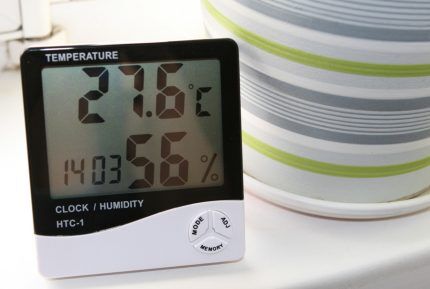
Our lungs are accustomed to air with humidity ranging from 40% to 60%. In winter, the humidity in residential buildings is less, in summer it is more. It is believed that mechanical hygrometers are more reliable than electronic ones, but electronic ones are more accurate.
Why is too dry air dangerous?
Too dry indoor air is contraindicated primarily for allergy sufferers and people with respiratory diseases. Dry air does not bind dust, the smallest particles of which enter the lungs with every breath.
As a result, even a healthy person experiences symptoms such as:
- labored breathing;
- sore throat;
- constant thirst;
- desire to clear throat
An asthmatic may literally begin to suffocate. For people suffering from chronic respiratory diseases, humidifier in an apartment is as necessary as medicine.
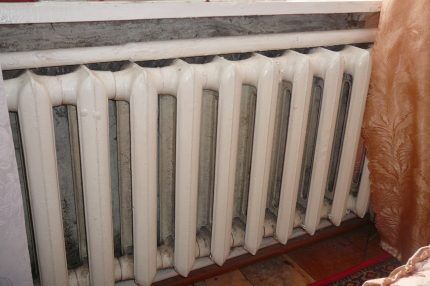
Dry air is especially dangerous in old houses, the ventilation system of which is far from ideal. Central heating in high-rise buildings also “dries” the air.
Closed and sometimes old-fashioned sealed windows and electric heaters in old apartments only worsen the situation.It literally becomes difficult to breathe in such apartments. But discomfort is only part of the problem.
Humidifiers against viruses and bacteria
A sore throat is unpleasant, but not fatal. But a disease, even if we are talking about a common cold, can kill. If the air in the apartment is too dry, you can get sick for two reasons.
Possibility of creating a hazardous environment
Firstly, some viruses and bacteria spread better in it. They are not bound by moisture, so an accidentally sneezed guest can put all the residents to bed.
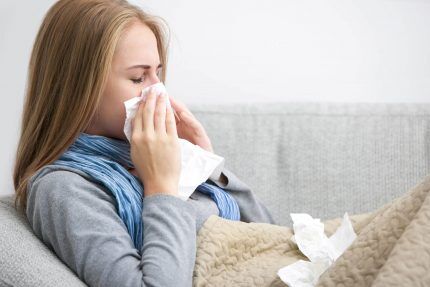
Secondly, dry air also means insufficient humidity of a person’s natural defense against diseases transmitted by airborne droplets. The mucous membranes are dry and do not retain viruses.
Bronchial tubes are less able to clean themselves. In winter, at the height of epidemics of acute respiratory infections, influenza, ARVI, appropriate air humidity in the apartment is extremely important.
Well-being and appearance
The human body absorbs oxygen better if the inhaled air has normal humidity.
Simply put, in dry or overly humid air it is more difficult to obtain enough oxygen, and this directly affects:
- performance (chronic fatigue occurs);
- sleep (drowsiness due to inability to get enough sleep);
- general well-being (one of the most common complaints is headaches).
And even without humidifier Skin diseases and diseases of the mucous membranes of the eyes may begin or worsen. The skin begins to peel and the eyes begin to hurt.Contact lenses turn into instruments of torture.
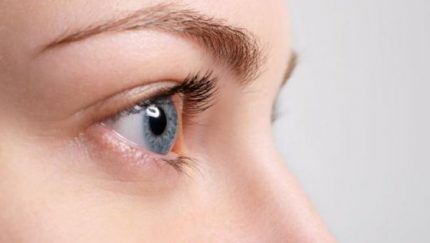
Doesn't sound very attractive, does it? Even a little scary. It turns out that we urgently need to install humidifiers, the sooner the better? But air humidifiers for an apartment can be both beneficial and harmful. Possible side effects depend primarily on the type of humidifier.
Traditional humidifiers
Traditional air humidifiers, also known as cold-type humidifiers, are most similar in design to fans. More precisely, these are fans, only somewhat more complex. They force air through the humidifying cartridge.
Water is poured into the humidifier tank to saturate the replaceable cartridges. It is through these cartridges that the air forced by the humidifier fan passes. Using a traditional humidifier, you can raise the humidity in a room up to 60%. The main side effect is noise.
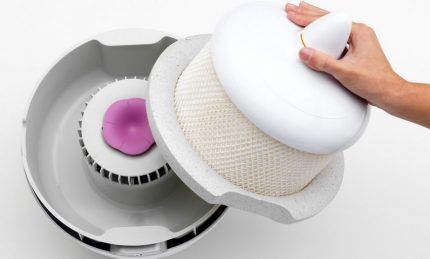
Modern cold-type humidifiers are devices whose noise level does not exceed 40-50 dB, which is much lower than a level harmful to health.
But in the presence of neuroses, some mental disorders, and sleep problems, even this level of noise can cause a deterioration in well-being and stress. Another likely side effect is also a direct result of the design features of a traditional humidifier.
When using it, the quality of indoor air directly depends on the quality of the water poured into the humidifier. Water can contain anything from banal salts to heavy metals; dangerous bacteria and viruses can lurk in water.
If you do not change the humidifier cartridges regularly, bacteria and viruses will accumulate there even if the water poured into the tank does not contain them. If the device is used correctly and good water is used, it is almost impossible to become infected with anything through a cold-type humidifier.
Steam humidifiers
The principle of operation of steam humidifiers is intuitively clear from the name: water is heated, evaporates and humidifies the air. Bacteria and microbes that are poorly susceptible to high temperatures cannot enter the air. However, steam humidifiers can also cause harm to human health.
Device and principle of operation
Filters and principle of operation Traditional air humidifiers do not allow heavier fractions of water, primarily salts, to enter the atmosphere. And the hot steam of old models of steam humidifiers “lifts up” everything that is dissolved in the water.
This may cause:
- Allergic reactions.
- Getting harmful salts or other dangerous substances into the lungs.
In addition, the steam, the temperature of which at the outlet of the humidifier can be 60 degrees, is quite easy to get burned.
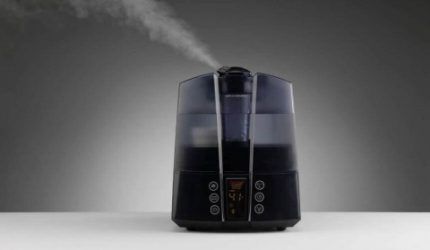
Unlike cold-type humidifiers, steam humidifiers can, in theory, raise air humidity to 90% or even more.
At the same time, humidity even at 65% is already considered excessive and can:
- lead to headaches;
- cause a runny nose;
- negatively affects the functions of the stomach.
You can control the humidity in a room using a hygrometer, which is increasingly being built into a humidifier. But even modern models of steam humidifiers with a hygrometer not only humidify, but also increase the temperature in the room.
High humidity in combination with elevated temperature is strictly contraindicated for both hypertensive and hypotensive patients. It can cause illness in healthy people, especially when combined with physical activity.

It is no secret that the “tropical effect” contributes to dehydration: a person sweats, but due to the humid environment the skin does not cool down. The body, deceived in this way, continues to sweat. Body temperature rises, the amount of fluid in the body decreases.
The consequences of wet overheating may include:
- nosebleeds (if you are prone to them):
- blood pressure surges (if you are predisposed to them):
- fainting (if you are prone to them).
It is especially dangerous to turn on a steam humidifier and a heater at the same time, especially if it is winter outside and all the windows are closed. In addition to people suffering from chronic diseases, elderly people and young children are at risk. The temperature and humidity in the room should be controlled.
Danger of unsupervised use
Excess moisture does not disappear without a trace. It settles on the walls, floor and ceiling. And promotes the emergence of dangerous bacteria and mold fungus. Their colonies, which thrive in a warm, humid environment, are not the best neighbors.
As a rule, black mold first appears in the corners of the room, under furniture and floor coverings. That is, without a hygrometer, you may not even notice a potential health hazard. This environment is an ideal breeding ground for woodlice, cockroaches and other insects.
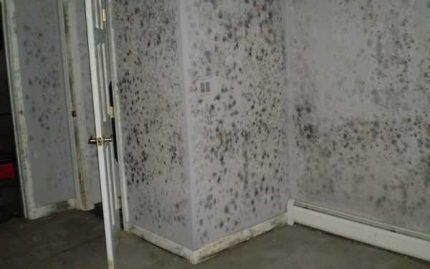
At the same time, it doesn’t matter to fungus and bacteria how expensive the European-quality renovation of the apartment is: colonies of microorganisms feel great on Italian tiles, and mold can develop under French baseboards.
But only mold can cause:
- muscle pain;
- nausea, diarrhea:
- vision problems.
Under certain circumstances, you can even die from the spores that mold reproduces. Of course, we are mainly talking about exotic types, but it is better not to use old models of steam humidifiers.
A number of steam humidifier models can be used in an alternative way - as an inhaler. Moreover, some models even have special attachments. This is not just good for health, it is a full-fledged medical procedure.
Ultrasonic humidifiers
The most modern equipment in this group is ultrasonic models. They humidify the air with cold steam, into which water is split under the influence of ultrasound. However, a number of models can heat water to kill microorganisms in them.
Features of operation and device
Typically, they have both manual and automatic humidity control. Quiet, volume is only 25 dB. You only need to periodically change the cartridges, which, among other things, soften the water and clean it of impurities.
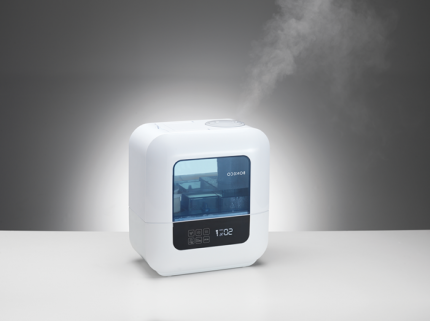
All the obvious shortcomings of traditional and steam humidifiers associated with health risks have been corrected. Unless you can get stress from the high cost of such a device. Just remember that at full power, certain models of ultrasonic humidifiers can slightly lower the air temperature in the room.
However, it would be wrong not to mention the myths associated with the dangers of ultrasound. Probably, not a month goes by without information appearing on the Internet that ultrasound can irradiate a person to death, and ultrasound itself is a very dangerous thing.
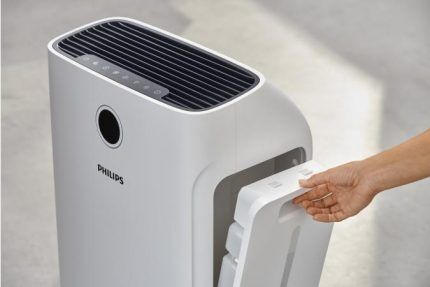
Ultrasound cannot irradiate anyone, because it is not light, but sound, high-frequency vibrations that are inaudible to the human ear. Some sound waves are heard by animals, such as dogs. But such waves are not used in household appliances.
Real benefits and harms
However, even such a safe device can cause harm to human health. Ultrasonic humidifiers, just like steam or traditional ones, cannot be used uncontrollably.
Often, ultrasonic air humidifiers and climate control systems of the latest generation, combining humidifiers and air purifiers, are used for other purposes.
Humidifiers are used to relieve symptoms of diseases without trying to treat what caused the disease.
These symptoms include:
- headaches, migraines
- first symptoms of colds
- first symptoms of hypertension or hypotension
For some irresponsible buyers, it is easier to turn the handle of another “device” than to start taking care of their health. This is a fundamentally wrong approach, which can subsequently seriously affect your health.
General recommendations for using humidifiers
Even the most cutting-edge humidifier with cleaning function cannot replace the ventilation system. It doesn't generate air. A humidifier is not very suitable for cleaning it, so the greater freshness of the air during operation of the device should not be misleading.
It is also not recommended to overuse aromatic additives, which are often offered for steam humidifiers. You should regularly maintain humidifiers - clean them, change cartridges, and also follow general safety principles when working with electrical appliances.
Conclusions and useful video on the topic
Despite the fact that alarmists regularly appear on the Internet talking about the dangers of humidifiers, the opinion about their benefits is currently shared by scientists, manufacturers and consumers.
The following video will introduce you to the opinion of a famous doctor:
Another interview with the popular doctor Komarovsky:
Most stories about the dangers of moisturizers are long-debunked myths.However, no one has ever claimed that increased humidity is beneficial to health.
Tell us about your own experience in using air humidifiers in your apartment/house/office. Did you experience any harm or benefit during their use? Please leave comments in the block below, ask questions on points of interest or controversial issues, share useful information and photos on the topic of the article.



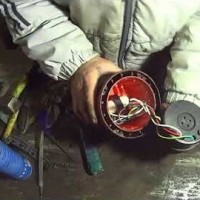
I bought a humidifier and immediately set it to 40%. I lived for 3 years at a humidity of 10%. In the morning I felt that I was somehow uneasy: weakness, lethargy, no appetite. I drank a sip of water all night, it’s hard to walk - my legs hurt. The humidifier continued to work. The humidity in the room was 40%. After 2 days the water ran out and I did not refill it. After 2 days I felt better. I started the humidifier again and again lay flat for two days, eating nothing, only drinking. I measured the temperature -38. I concluded: I lived for 3 years at 10% humidity and suddenly suddenly set it to 40%. Nowhere is it written that you need to enter the high humidity regime gradually. I'm right?